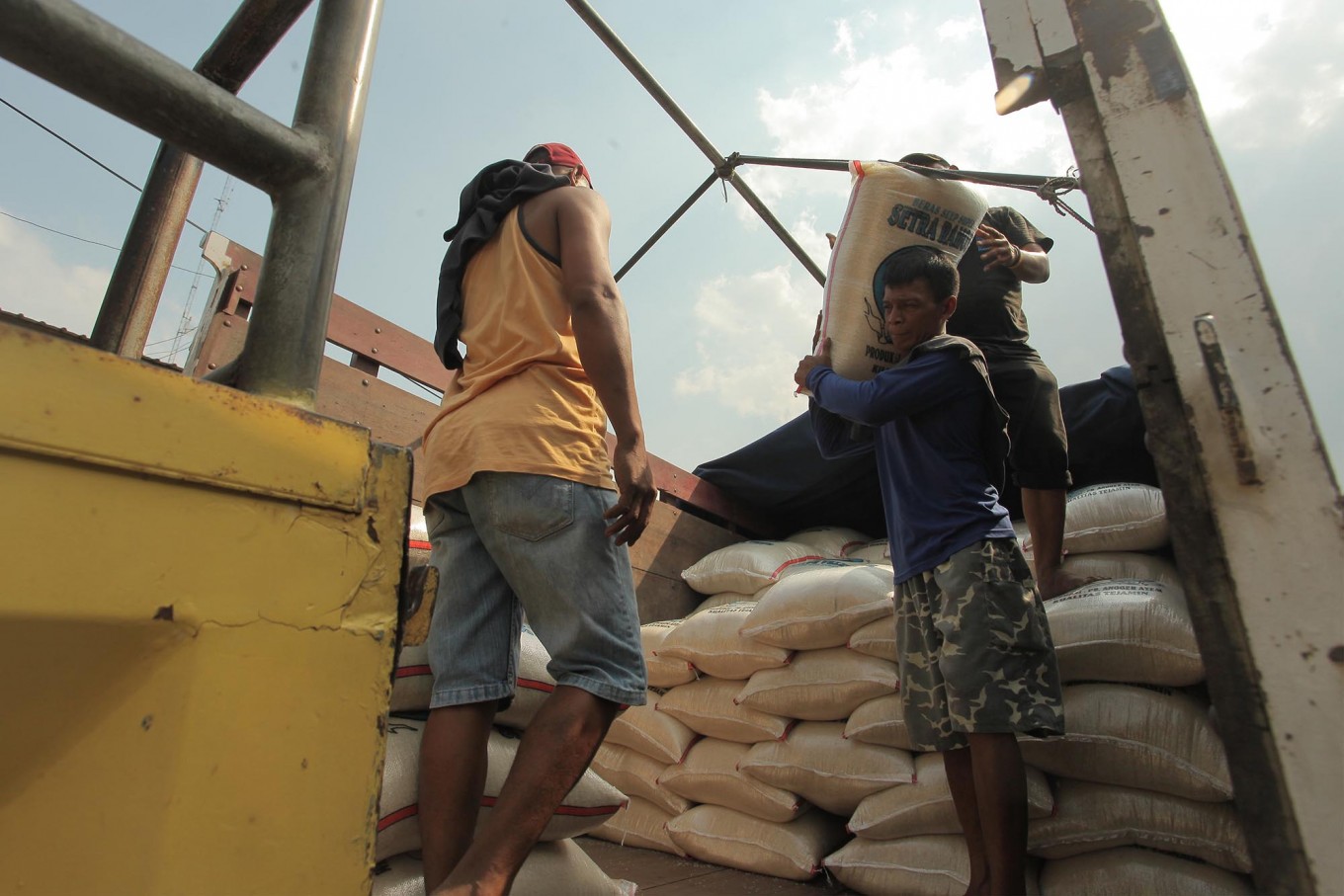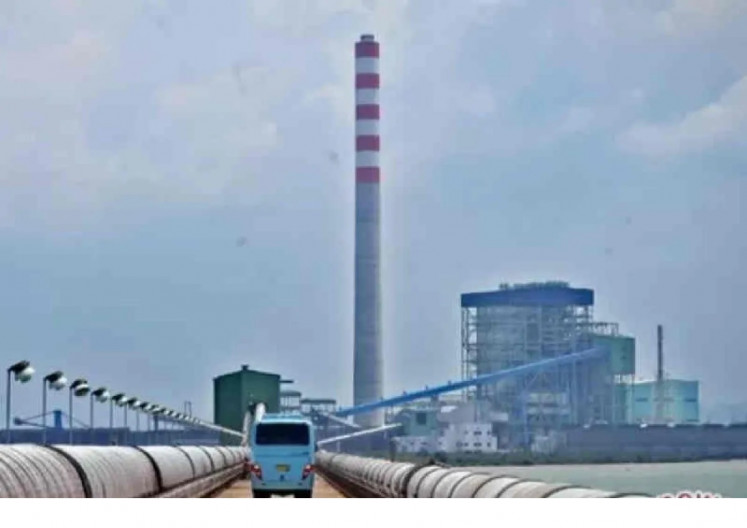Popular Reads
Top Results
Can't find what you're looking for?
View all search resultsPopular Reads
Top Results
Can't find what you're looking for?
View all search resultsUnreliable data prompted govt to import rice: Analyst
Change text size
Gift Premium Articles
to Anyone
 Workers unload rice from a delivery truck on Aug. 8, 2017 at the Cipinang Rice Central Market in East Jakarta. A senior analyst has questioned the reliability of the government's data on rice, theorizing that inaccurate rice data had led to its sudden decision to import rice last Thursday. (Antara/Muhammad Adimaja)
Workers unload rice from a delivery truck on Aug. 8, 2017 at the Cipinang Rice Central Market in East Jakarta. A senior analyst has questioned the reliability of the government's data on rice, theorizing that inaccurate rice data had led to its sudden decision to import rice last Thursday. (Antara/Muhammad Adimaja)
T
he head of research at the Centre of Reform on Economics (CORE) Indonesia has questioned the validity of the government's rice data. Unreliable rice data has forced the government to import the commodity to ease prices, although the Agriculture Ministry claimed that the country's rice production was adequate.
“One of the problems is the limited funds for carrying out ice stocks surveys,” CORE research head Mohammad Faisal said in Jakarta, as reported by tempo.co on Monday.
The government announced last week that it would import 500,000 tons of rice in late January, although the Central Statistics Agency (BPS) had said earlier that 2.8 million tons of rice was produced last month against the demand of only 2.6 million tons. Agriculture Minister Amran Sulaiman claimed further that rice production had reached 3 million tons in December, 2017.
Faisal said the government needed to look to other ASEAN countries on monitoring food commodities, by obtaining data from both state-owned enterprises and private companies.
He said several ASEAN countries also required commodity distributors to submit monthly reports, so governments had alternative data on food distribution.
Faisal said that the government currently relied on data solely from the National Logistics Agency (Bulog), which controlled only10 percent of the rice distribution. He said the government had no data on the other 90 percent of the rice distribution.
He believed that the government had to make an urgent decision to import rice, because it had referred to inaccurate data on rice supply and demand. (bbn)









